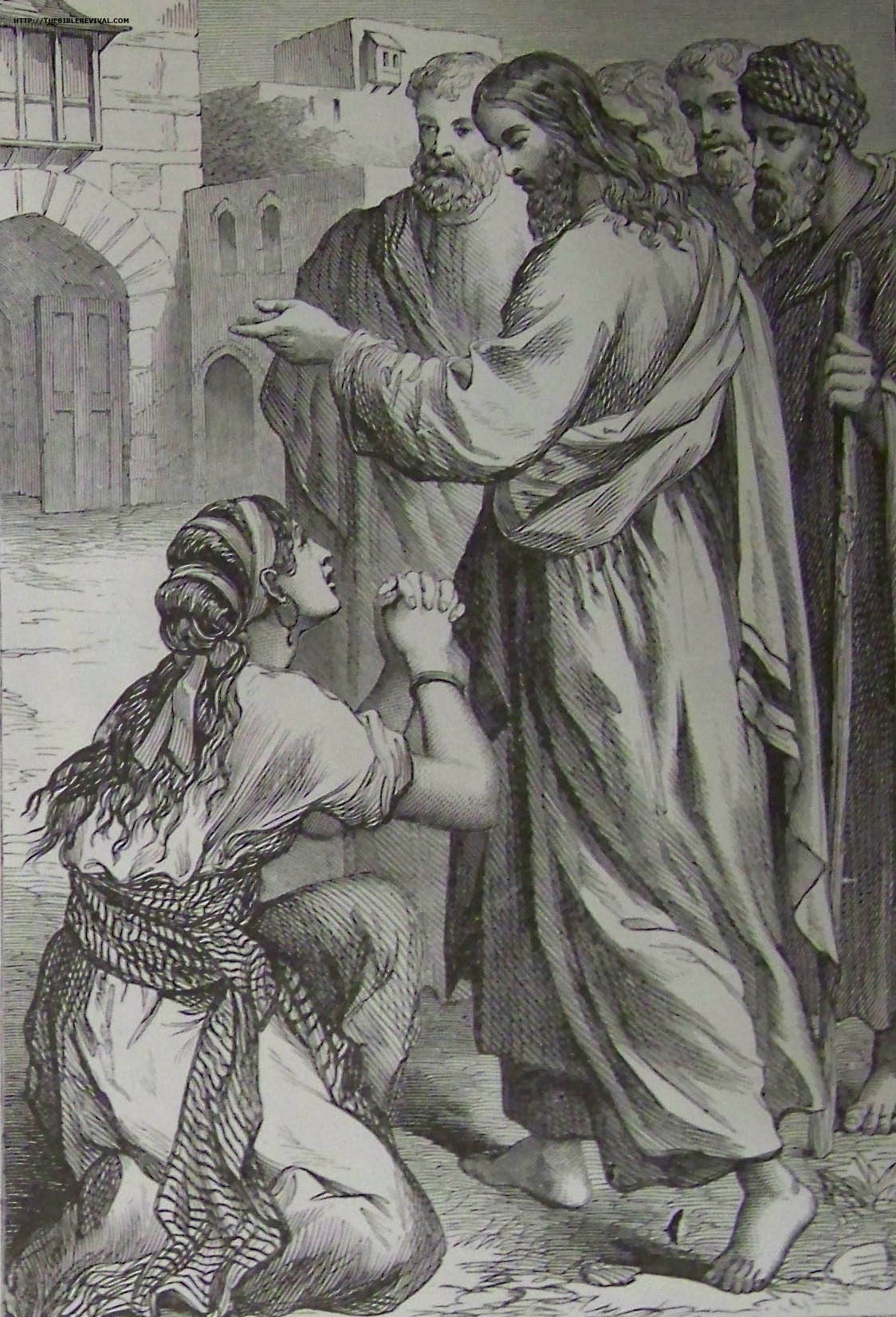
Tomorrow's Gospel reading in the lectionary, from Mark 7: 24-37 is the story of the Syro-Phoenician woman, a frankly disturbing story where Jesus, at first seems to be responding in a somewhat racist manner to a woman in need. I say "at first seems" because many commentators are very careful to extricate the sinless Son of God from this accusation by various theological and sociological backflips, suggesting that he was only testing the woman (a fairly crass test in the face of need one might think), or that he was acting out the response she might have expected and would have recieved from the disciples to show them something, or that the term for dog he used was not an insulting one at all (unlike most Jewish references to dogs which are more akin to our use of the word "Bitch") but a pet term. Other, more liberal theologians suggest that this was a spiritual growth point for the human Jesus.
Me. I don't know what to think. But as on most first sunday's in the month I will be conducting a communion service in a Methodist church, and during that service we usually include a version of what is generally known as the "Prayer of Humble Access" a beautiful prayer drawn up by Cranmer for his Book of Common Prayer. I say it is beautiful, although I do know of others who find it worryingly self-deprecating, and there are certain pastoral settings where I might not want to use it. But is beautifully constructed and resonates with some of the themes and language present in this Gospel reading. So, I may not know exactly what was happening in this engagement between the Syro-Phoenician woman and Jesus, but this prayer expresses exactly what happens in the engagement between any of us and Jesus in communion. Here is the 1664 version of that prayer:
We do not presume to come to this thy Table, O merciful Lord, trusting in our own righteousness, but in thy manifold and great mercies. We are not worthy so much as to gather up the crumbs under thy Table. But thou art the same Lord, whose property is always to have mercy: Grant us therefore, gracious Lord, so to eat the flesh of thy dear Son Jesus Christ, and to drink his blood, that our sinful bodies may be made clean by his body, and our souls washed through his most precious blood, and that we may evermore dwell in him, and he in us. Amen.
Comments
Listen to Igmar Bergman.
"I hope I never get so old I get religious"
By mistake I was given too much anesthesia (before minor surgery). The lost hours of that operation provided me with a calming message. You were born without purpose, you live without meaning. When you die, you are extinguished. From being you will be transformed to non-being.... This insight has brought with it a certain security that has resolutely eliminated anguish and tumult...
someone said recently during a discussion "Faith is the fatigue resulting from the attempt to preserve God's integrity instead of one's own" sounds about right.